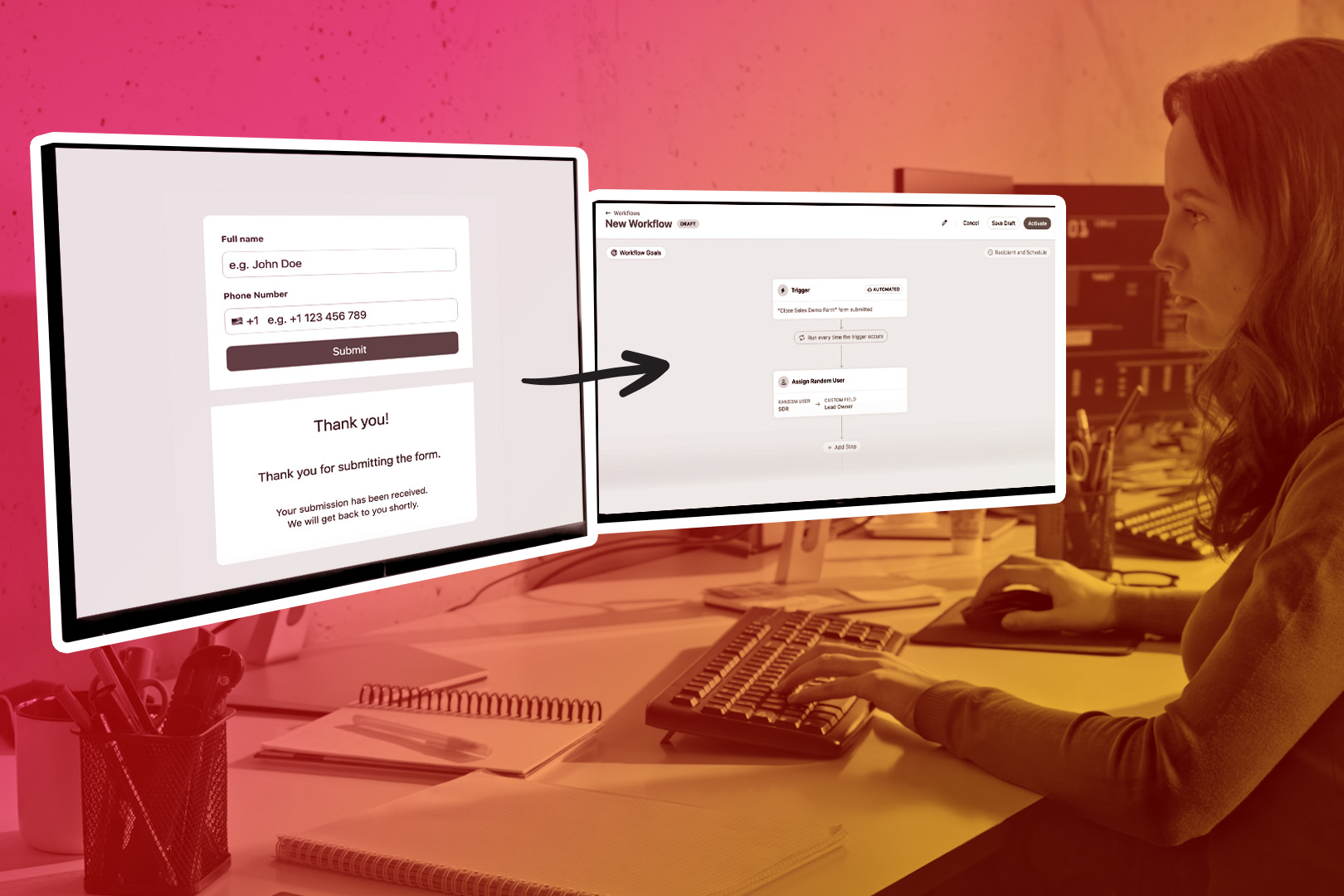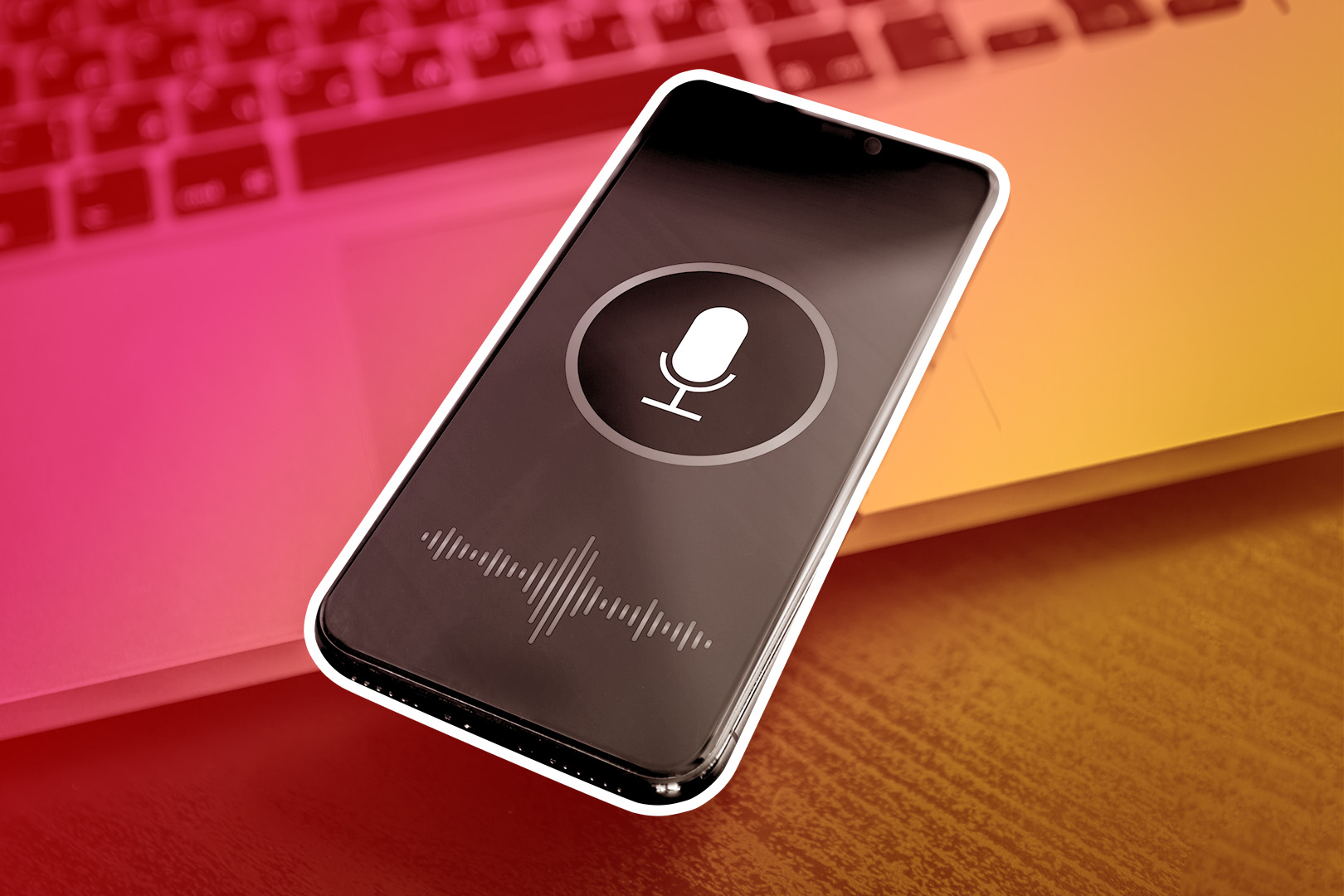Sales huddles are essential to building and maintaining a winning sales culture. Huddles align priorities, spotlight metrics, and raise energy so reps hit pipeline-building activities faster.
Remote team? Run your sales huddle on any video platform—just keep cameras on to preserve face-to-face energy.
A sales huddle is a short, high-energy daily sales stand-up—not a traditional sales meeting
I'll say this again throughout this piece, but it's important that you understand that a huddle is not just another name for a sales meeting. It's a distinctly different experience and serves a distinctly different purpose.

If you've ever worked in a large enterprise sales team, you might have experienced conventional sales meetings as a recurring nuisance for the sales manager to organize and a dreaded waste of time for the reps. A huddle is the exact opposite: you want to leave your reps wanting more.
Sales Huddle Ideas
Remember that you don't want to push any old sales meeting idea into your huddle. So, while I'll offer you a wide range of ideas, I want you to be deliberate when deciding which ones to include in your agenda.
1. Set Goals
Set a goal for the day or until the next huddle. This can be an activity goal, an outcome goal, or a personal learning goal. Setting sales goals also enables your team to hold each other accountable and fosters a sense of friendly competition.
2. Celebrate Wins
Find fun ways to create incentives for reps that hit their goal, whether cold, hard cash or simply recognition in the company, celebrating a "rep of the day" in Slack chat or a simple shoutout from the team. You can level up by creating company merch as a reward for extraordinary achievements. You don't have to worry about upfront costs; companies like Printify offer no investment in merch creation.
Encourage people to share their wins. But also watch out for those team members who aren't as vocal about their wins and prompt them to share a specific win you know would be good to hear for the team.
3. Discuss Key Metrics
And only key metrics. In other words, only relevant and actionable metrics for the entire team should make it into your huddles. Remember: A huddle is not a conventional sales team meeting.
Schedule huddles via your calendar and surface real-time CRM dashboards (leaderboards, activity, talk time) to guide coaching.
Use data to guide best practices. Look at what the data tells you about top-performing reps and how they differ from low-performing reps, especially on an activity level.
Real-time activity metrics like dials made, emails sent, and talk time are often good ones to bring up, particularly for reps doing prospecting or building their own sales pipeline.
4. LinkedIn Post of the Day
LinkedIn is an excellent platform if you're in B2B sales these days. Assign one rep per day to post on LinkedIn; the team comments within 60 minutes to boost reach (likes, meaningful comments, tag prospects).
All this will help create engagement and surface the content to a wider audience on LinkedIn. It leads to more employee recognition and raises awareness for your brand.
5. Ask Your Team
Ask your team what they want to be part of the agenda. Not only will it give them a sense of ownership, but often, you'll find that they come up with the best ideas. (That's certainly been the case many times for me.)
6. Icebreakers
Depending on your crew's size, you might want to use a few icebreakers to warm them up. Find what's right for you here. This can be sharing a silly sales moment, cracking a few jokes about the marketing team and the leads they provide, making a self-deprecating joke, or asking a non-work-related icebreaker question.
Some potential icebreaker questions:
- What's one quirky interest or habit you have?
- What’s the best trip (traveling-wise) you ever had?
- What did you do on the weekend?
- What's one thing your coworkers don't know about you?
- Would you rather ... (never be able to travel abroad again, or never be able to watch TV again / hike in the mountains or dive in the ocean / get a tooth pulled, or have to use Salesforce for the rest of your life)
- What TV show do you wish would still be made?
- What was your first job?
- What animal would you choose if you had to turn into an animal?
- What was the last great movie you've watched / great book you've read?
If none do it for you, you can check out this exhaustive list of icebreaker questions for various scenarios.
7. Share Tips
Pick one tip that can help your reps sell more. This could be a sales tactic, a cold-calling tip that helps reps engage prospects more effectively, a quick role-play for a particular situation, or a good response to a specific sales objection.
But don't try to fit too much into it. Focus on just one per huddle that your reps can take away.
8. Coach for Specific Challenges
You can give your salespeople the option to share a specific challenge they've encountered. You and the team can then offer support and advice. Fostering this kind of peer sales coaching also helps create a sense of camaraderie amongst your reps.
9. Motivate the Team
Everything you do during a huddle should be motivating, but one of the most powerful things you can do is create a ritual that gets the entire team fired up.
We've had sales teams that used to watch one of my Daily Sales Motivation videos every day together to get started. They'd get an inspirational sales quote and a corresponding action item to get them fired to make sales calls.
10. Sales Huddle Games
You can even come up with quick game ideas to play.
- Sales contest: Launch a contest or competition for your team. Who makes the most calls, books the most meetings, gets the best response rates to their emails, reaches the most decision-makers, and creates the most opportunities?
- Timed pitch: Ask one sales team member to pitch your product to a specific industry or buyer persona in less than 45 seconds. Afterward, analyze the sales pitch and provide feedback to the rest of the team.
- Product knowledge quiz: Ask a few questions about your product. For example, what's our most popular integration in the logistics industry?
- Sales process quiz: Ask questions about specific elements of your sales process and documentation. For example, how do you mark that you've reached a decision-maker in our CRM?
Sales huddle games are a great way to reinforce elements of your sales training program on an ongoing basis and keep your reps sharp. You can also check out our list of sales training games and design shorter versions.
Set Your Agenda
As always, you don't want this to be a typical sales meeting agenda. Keep it simple. Focus on something that makes an emotional impact. Over time, complexity can overwhelm us. It's your job as a sales leader to create clarity and camaraderie for your whole team.

Less is more when it comes to your agenda. Keep it tight.
Should [agenda item] be part of a huddle?
If you're not sure whether to include a particular agenda item, lean towards no. It's better to keep your huddles a bit lean than stuff too much into them until they become pointless. Don't just try to fit typical sales meeting topics into a huddle—make your huddles unique and distinct within your sales organization.
The last thing you want is for your reps to feel this is just lost selling time.
How Often Should You Conduct a Sales Huddle?
How often is best for your team? It really depends, but one thing that's universally true is to stick to a consistent schedule and create a clear structure for your team.
- Some teams do a morning huddle daily. If that's you, keep your huddles short and sweet, and make sure you're motivating your sales reps. Consider your design: Have a fixed pattern that you repeat every day, keep it completely open, or have a central theme for each day of the week. Whatever your choice, consider turning this into a daily ritual for your sales team. Kelly McDonald argues that you should do a mini sales meeting every day.
- Mondays, Wednesdays, and Fridays are another popular frequency.
- Mondays and Fridays are another common choice. You typically set the goals at the beginning of the week, motivate the reps, and then review and share the learnings at the end of the week.
- Once a week, typically on Mondays, can be an option too. This communicates that you value and respect your reps' time, that you want to get out of their way to let them do the work, and that you trust them to do what's right. However, make yourself available and proactively manage and lead your team. If you've never conducted a huddle, and this is an entirely new thing for you, doing this as a weekly sales meeting might be an option—it makes it easier to create learnings and turn it into something your team looks forward to. You can branch out to a twice-weekly rhythm once you find insufficient time in your huddles.
The guiding principle should be: Do your reps usually look forward to the huddle, or do they dread it? If they dread it, are bored by it, or perceive it as a waste of time, roll back and do your huddles less often, keeping them shorter. (More on the ideal length of a huddle later on.)
Best Time to Huddle?
Just do it in the morning. One of the primary objectives is to get your team members amped up, and there's little point in doing so once they wrap up their day.
There's a side benefit to doing it in the morning, too, especially if you're doing daily huddles: It helps to keep your reps on time. Reps perform best consistently when you give them a clear structure, and the daily morning ritual gets them in the right mindset.
The only other time a huddle might make sense is in the early afternoon. That time is after lunch, when the energy in the room is typically low, and reps could use a push to get into a higher gear.
Another factor to consider: If your team has the best reach rates at a particular time of day, you don't want to interfere with that. So, if your reps schedule the most meetings between 1 pm and 3 pm, don't make them attend a huddle during their peak time.
How Long Should Your Sales Huddles Be?
The simple answer is slightly shorter than your team wants them to be.
Your sales reps should look forward to the huddles. They're also called stand-up meetings; if done daily, they can be called daily sales scrums. If you're doing them standing up, that's all the more reason to keep them short.
You won't be sitting around a table munching pastries and sipping coffee.
In general, the more often you conduct a huddle, the shorter it should be. If you're conducting daily sales huddles, I recommend 5 to 15 minutes, with a maximum of 30 minutes.
If you do just one huddle weekly, 15 to 30 minutes is adequate.
But keep in mind: A huddle is not a traditional sales meeting. Keep it short and sweet. Make it an event, an emotional experience that aligns your whole team. There's nothing worse than making your salespeople come together for something they perceive as a waste of time.
Who Should Conduct the Sales Huddle?
Well, you, the sales manager. Right? If you're reading this article, the answer is probably you, whether you're a team lead, director, or founder involved in the day-to-day sales process.
When one of your sales reps starts going off on a tangent or dives too deep into a particular subject, it's your responsibility to step in and moderate. Tell them: "You're making a great point, and I think this deserves its discussion. Let's add it as a sales meeting agenda item (or discuss it 1-on-1), and for the sake of time, let's move on so we can wrap up this huddle on time."
How to Create a Sales Huddle Template
You should have some structure; creating a template is the best way to do that.
If you conduct your huddles completely face-to-face on a video call, a mental outline is all you need.
But we're visual creatures. It helps to give your team something to look at.
You can use a Google Slides, PowerPoint, or Apple Keynote template for your daily huddles and either project that into the room or do a screen share in your online conferencing tool.
Share a dashboard or report from your CRM showcasing real-time metrics. Sales leaderboards are great for daily huddles as they help foster healthy internal competition.

Here are 3 Sample Sales Huddle Templates:
You absolutely should design your format, but looking at some templates as a starting point and seeing what you want to take is often helpful. However, always remember the primary purpose of your huddles: Do you want to motivate? Educate? Foster team spirit? Get a sense of how the team and reps are doing.
The main objective of your huddles should determine how you structure them. (You can also rotate this for different days of the week.)
1) The "I'm confused and don't know the difference between a huddle and a sales meeting"-huddle
Alright, this is a tongue-in-cheek agenda. Don't use it, but there's a reason I listed it here.
Time: 45 minutes
- Icebreaker opening (five minutes)
- Share wins & successes (five minutes)
- Check-in on deal statuses (ten minutes)
- Discuss roadblocks and obstacles (ten minutes)
- Review numbers & performance (five minutes)
- Competitor updates (five minutes)
- Quick sales huddle game (five minutes)
Again, don't use this. I included it here because I see this way too often, which is why many sales teams hate huddles and consider them a waste of time. (And in this case, they're right.)
2) The Hype Huddle
Time: 5 minutes
- Share one win (one minute)
- Set one goal or theme to focus on for the day/week (two minutes)
- Motivate your crew (two minutes)
A quick 10-minute huddle to get the team excited and motivated. This is extra powerful if you find an overarching theme for the win, the goal, and how you motivate them.
An example of a theme could be to foster collaboration. In that case, motivational quotes about sales teamwork can be great for wrapping up your session. If you do a Monday huddle, quotes that get your reps fired up for the week are a good fit.
3) The Coaching Huddle
Time: 15 minutes
- Icebreaker (one minute)
- Share one win (one minute)
- Discuss key metrics (two minutes)
- Coach for one specific challenge (seven minutes)
- Sales huddle game (two minutes)
- Motivate the team (two minutes)
You might think: What's the point of coaching for one specific challenge in seven minutes? How meaningful can anything that you can coach in seven minutes be?
But there's something powerful about a focused, seven-minute session. It forces you to narrow down on one specific idea, situation, problem, or technique.
Your reps will often find that they are already familiar with what you coach, which helps solidify the learning even for those already good at it. It also helps those who aren't good at this technique yet. It also gives reps a chance to weigh in with their tips, and top performers might be able to contribute an alternative angle.
Also, check out Mark Brooks's agenda template, which more closely resembles a conventional sales meeting yet is still well-designed.
How to End Your Huddles
You can ask your team what their favorite takeaway from the meeting was or how it will impact their day. You can reinforce the main point of the meeting or have some sort of final ritual to elevate the energy of your reps.
The best sales leaders understand that their #1 job is to create an environment for their reps that brings out the best in them. They give them all the know-how, sales resources, and incentives they need to win—and then fire them up and set them free.
Come Together, Right Now, All with Me
Sales huddles are powerful tools for keeping reps on track, managing crew energy, elevating sales skills, and improving team performance.
Lead by example. Set the tone for the culture you want to see. Embody the attitude you want your reps to internalize.
Use the advice shared here to create or improve your huddles, but also keep an open and curious mind. Experiment and find out what works best for your team. And if you find something that works well, let me know on LinkedIn!

Want more advice on hiring and leading high-performing sales teams? Get your free copy of The Sales Hiring Playbook today!









.jpg)


